BCS policy recommendations for computing and digital skills in education:
Rapid advances in digital technology, including AI, present major opportunities for growth, but realising these benefits equitably depends on ensuring all young people develop the digital skills they need—whether as future professionals, domain experts, or citizens. BCS calls for urgent reform of the school curriculum and qualifications to reflect modern digital realities, support inclusion, and prepare students for the demands of a digital society.
- A systematic review is needed to ensure the school curriculum and qualifications meet the needs of future IT professionals, domain-specific users, and digital citizens.
- Key to this review is the development of broader IT qualifications aimed at digital literacy and applied IT across subjects.
- We recommend that GCSE, A-level, and vocational computing qualifications are updated to reflect current technologies, ensure broader relevance and address the societal, economic, and ethical dimensions of digital systems.
- Ensure all subjects support appropriate and effective use of digital technology and that digital skills are integrated across the curriculum
- Provide training and support so school leaders and teachers can be empowered to lead and use digital tools, including AI, effectively.
- Ensure that access to high-quality digital education is not limited by socio-economic background or school resources.
- Support schools to use technology to improve learning, assessment, school management, and staff wellbeing—ensuring this is well led and skill-supported.
BCS believes these reforms are essential to equip young people for a digital future and ensure that the benefits of technology are widely and fairly shared.
Computing and Digital Skills

Read some of our consultations
January 2026
BCS, responded to the Department for Education’s consultation on new post-16 pathways, including the introduction of V Levels and simplified Level 2 routes. Our submission emphasises the need to embed digital literacy and AI skills across all qualifications, ensure clear progression routes, and address teacher capacity challenges to deliver high-quality computing education. By advocating for inclusive design, robust CPD, and alignment with industry needs, BCS aims to help shape a system that equips every learner for a digital-first economy.
BCS' response to the Post-16 Level 3 and below pathways
December 2024
Computer Science is thriving in Higher Education in the UK, and is one of the fastest growing subjects in recent years, seeing a significant increase in applications, particularly among female students. Yet despite a diverse student population, concerns remain about student retention and employability, particularly around the high dropout rate, and lower continuation rates for disadvantaged students.
Securing our Future: Retaining Students in Computer Science Higher Education (UK)
December 2024
We are at a significant moment of change in education with the recent election of a new government making a different policy direction inevitable. The Curriculum and Assessment Review promises new breadth and relevance in what we teach; at the same time what is going on outside the school gate is already revolutionary. The development of Artificial Intelligence is likely to create as big a shift for the economy and society, learners and educators, as the introduction of the internet.
BCS report: Secondary school teachers and AI
November 2024
The computing curriculum and its qualifications must provide pathways for the specialist (both academic and vocational) and those that plan to enter fields (both academic and vocational) that increasingly depend on a strong understanding of how computing is applied.
Young people must leave with the essential digital literacy needed to make confident, creative, and effective use of technologies and systems, and well-informed critical judgements about the implications and impact of how digital technology is used.
April 2024
BCS responded to the government’s consultation on its plans to replace A-levels and T Levels with a new qualification, the Advanced British Standard. Whilst welcoming the proposals, BCS questioned the absence of digital skills and computing qualifications.




















